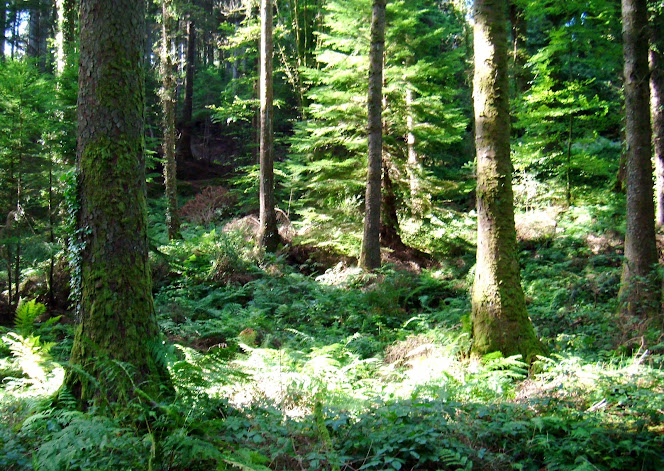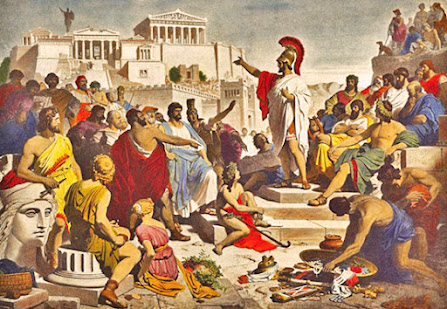 |
| Myself and my daughter, some years ago. |
One morning years ago, as I tried to sleep in, a metre-high blond person jumped up and down on me shouting, "Look what St. Necklace brought us!" I liked the "us" - she was as happy for me as for herself.
The sixth of December is St. Nicholas Day, when many families would
leave presents in children’s shoes. That year my daughter got chocolate coins
and a few other goodies. In my family -- and this part seems to be unique to us
– St. Nicholas leaves tins of sardines and octopus. The Girl was calling him
"St. Necklace" -- she got a necklace on this day a year or two ago,
and the name stuck. In the Irish countryside our every Christmas was small and
somewhat isolated, but these moments make them meaningful.
Meaning is something we often lack in modern Christmas celebrations, where we
feel pressured to spend too much, eat too much, drink too much, listen to the
same terrible rock songs, watch certain television specials, put up enough
lights to make our house visible from space and pretend to be cheerful when we
are not. There’s nothing sacred about these pop-culture traditions, though;
Santa Claus and many of the carols we sing are of surprisingly recent
invention, often less than a hundred years old, and often created as advertising
campaigns.
I’m not trying to be a Grinch about this – by all means, enjoy the holiday. I simply don’t feel obliged to hear all the songs, over and over, for a few months. What’s more, the new ones are squeezing out many local and truly traditional family rituals that date back longer than we can measure.
Take Wren Day, when local families gathered in the nearby woods for a ritual called the Hunting of the Wren. Men dressed in straw – “straw boys” – stole a statue of a wren, and its defenders – “wren boys” – gave chase with all the local children. After all the children had been nicely exhausted – while their parents sat back sipping tea around the fire – the Wren Boys and children came back holding the Wren in triumph. The Wren Boys and Straw Boys shook hands, made peace, and the Wren served as King of Birds for another year.
I brought my daughter to this ceremony, but it is one of the last times it would be celebrated. A ritual that might date back to Druid times, two thousand years ago or more, will soon be another casualty of the Great Forgetting of our era; my daughter might be one of the last people who will remember it.
Take wassailing as another example: neighbours walked from house to house carolling and being invited inside, giving everyone a chance to meet their neighbours. I don’t know about you, but I haven’t seen anyone do this in a long time, nor do many people these days feel comfortable introducing themselves to their neighbours.
Many families do use Christmas to see loved ones, share meals, sing songs together, and tell old stories, and that’s wonderful. But here’s the thing: people used to do these things every day. Here in Ireland, for example, wassailing wasn’t just once a year, but all through the winter; neighbours gathered at each others’ homes, brought instruments, played music, sang songs, and told stories that broke up the long darkness. It allowed each family to share what they had, making deposits in a community favour bank. It strengthened the feeling of community, so that burdens were lessened because they were shared, and joys were heightened because they were shared. Every day used to be more like the best parts of Christmas today.
This year, when many of us are strapped for cash or will have an unusually quiet and empty Christmas, you have permission to ignore the usual spending, eating and drinking extravaganzas. Perhaps you can turn off the television, put away the phones, go for walks, read A Christmas Carol to your children, make gifts with them, and perhaps go carolling at the doors of your elderly neighbours. You’re not here for the holiday; it’s here for you, and you decide how to enjoy it.
When I was raising my daughter in the countryside, every Christmas became sacred. Those moments, with her climbing into bed with me and sharing her contagious awe, were my comfort and joy, and when I prayed, they were the engine of my gratitude.



